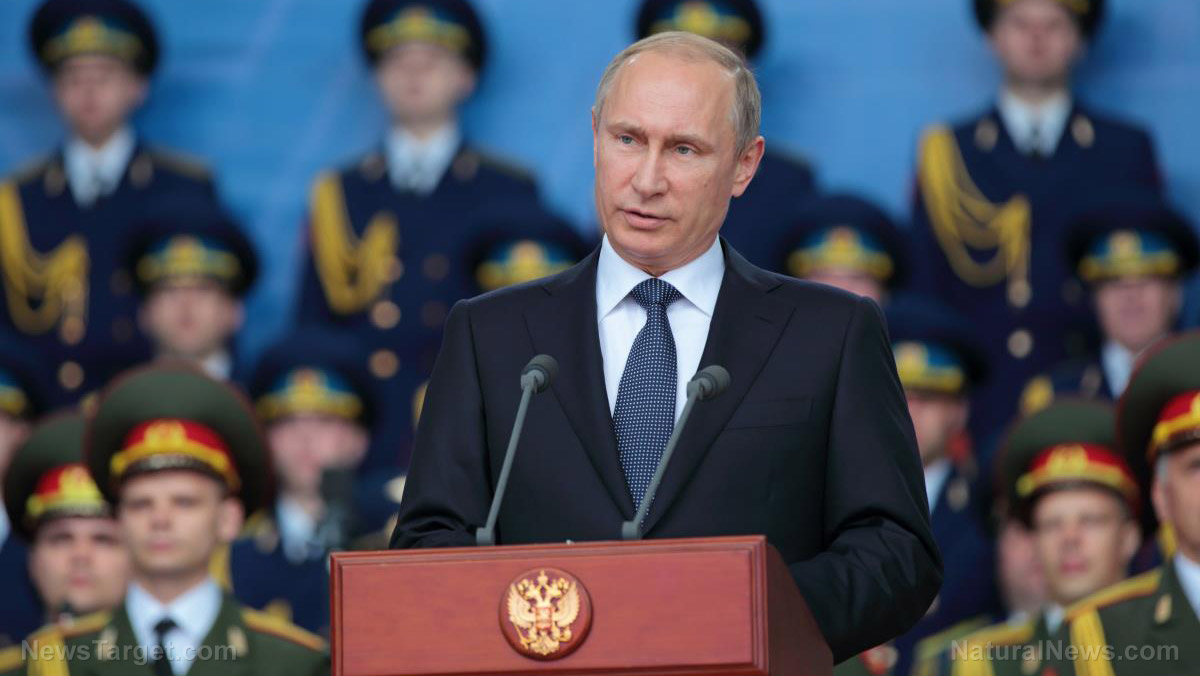
Russian President Vladimir Putin has enacted a series of legal amendments that could spell the end of online anonymity, curtail free speech and stifle innovation.
The amendments, officially titled Federal Law No. 406-FZ, were approved by Putin on July 31 and take effect immediately, with some provisions slated to come into force before Christmas 2023. (Related: French government passes justice reform bill that vastly expands police surveillance powers.)
The law requires individuals to provide verifiable proof of identification before gaining access to Russian online platforms. As part of this crackdown on online anonymity, foreign email systems such as Gmail and Apple are set to be banned with stringent measures slated to take effect by the end of this year.
The use of Virtual Private Networks (VPNs) remains permissible, but any content that promotes their use for evasion purposes is now considered a criminal act.
Furthermore, the internet hosting services of Russia require state registration and adherence to strict guidelines. The Russian government seeks to enhance its customer service and security – thus, hosting companies are now mandated to identify potential customers using approved procedures and are held accountable for the content on their platforms.
These new regulations redefine the parameters of online engagement and underscore a significant shift in the cyber law of Russia. By September 2024, only companies listed on the state-managed register will be eligible for use by public entities, while "computing power" and "information systems" will be restricted.
Newly approved laws threaten Russian online freedom
The new legislation, passed under Federal Law No. 406-FZ, is set to have far-reaching implications for both internet users and businesses. It could stifle creativity and potentially push entrepreneurs to leave the country.
Instead of a simple confirmation link or email verification used for user registration, users need to provide extensive personal information through government-endorsed systems. This move undermines the basics of online privacy and anonymity.
The banning of foreign email systems like Gmail and Apple would limit user access to only state-approved email services. This action limits choices and access to global communication platforms.
While VPN providers are not outright outlawed, posting information online that advises users on circumventing the state-approved identification mechanisms using tools like VPNs or Tor will be deemed a criminal offense. This presents a chilling effect on discussions around privacy and tools to safeguard it.
The legislation also brings hosting companies under strict government scrutiny. This threatens the independence of hosting services and exposes them to potential liability for the content posted by users on their platforms.
The introduction of these amendments has raised alarm bells about the future of the Russian internet landscape. Critics argue that these measures could push internet entrepreneurs to either fall in line with the government's agenda or leave the country altogether. The stifling of free speech and the invasive surveillance of online activities threaten to drive away innovators and investors.
Furthermore, the new laws extend to news aggregator platforms, potentially placing the freedom of the press under government control. This aspect has sparked concerns about the erosion of journalistic independence and the government's ability to shape the narrative and information available to citizens.
Watch this video explaining how Orwellian surveillance looks like.
More related stories:
Rep. Gaetz leading charge to dismantle illegal government mass surveillance scheme.
REAL or STAGED? Sweden’s drone surveillance EXPANDED due to violent gang wars.
FBI surveillance contractor infiltrated chatrooms, monitored skeptics of COVID jabs.
Sources include:
Please contact us for more information.















